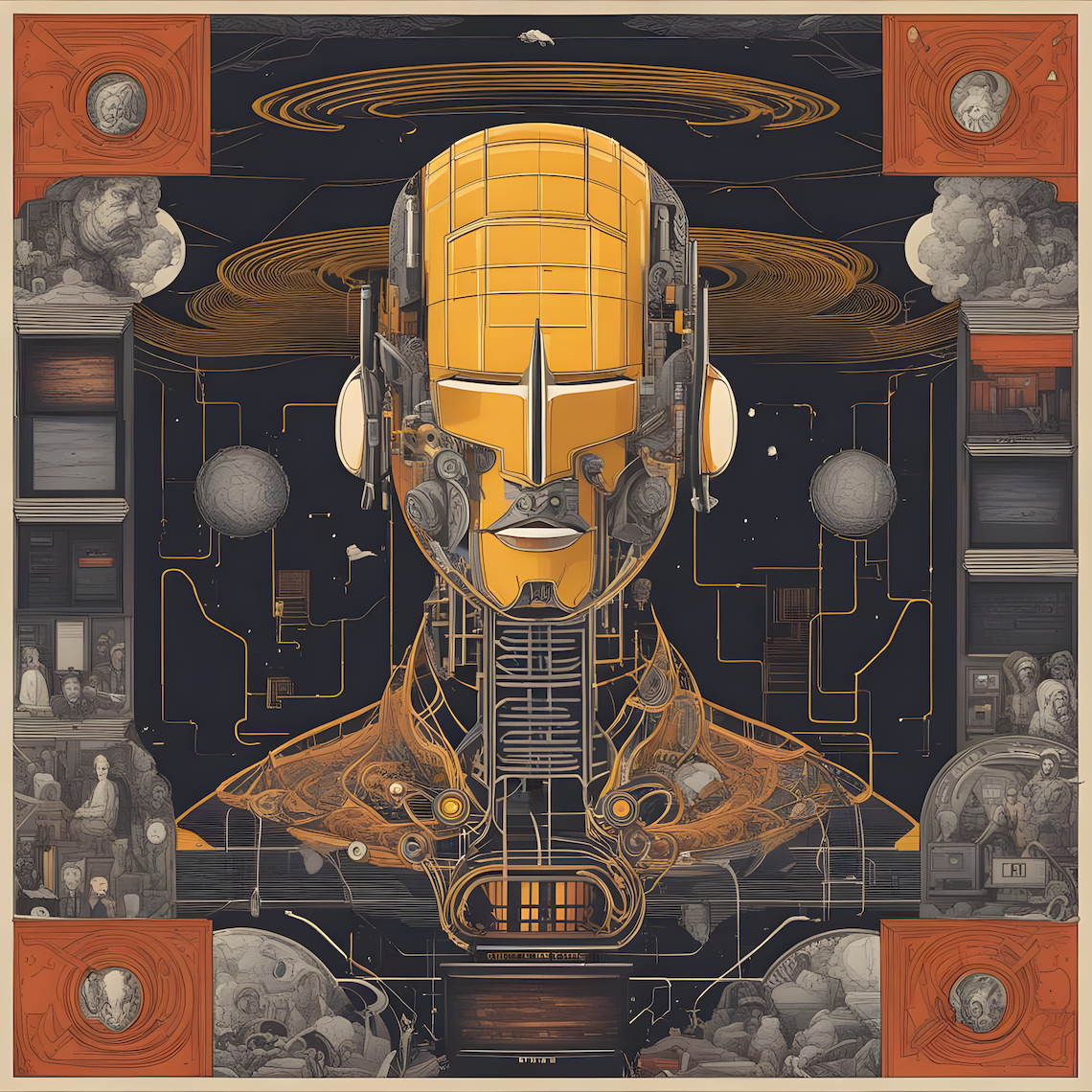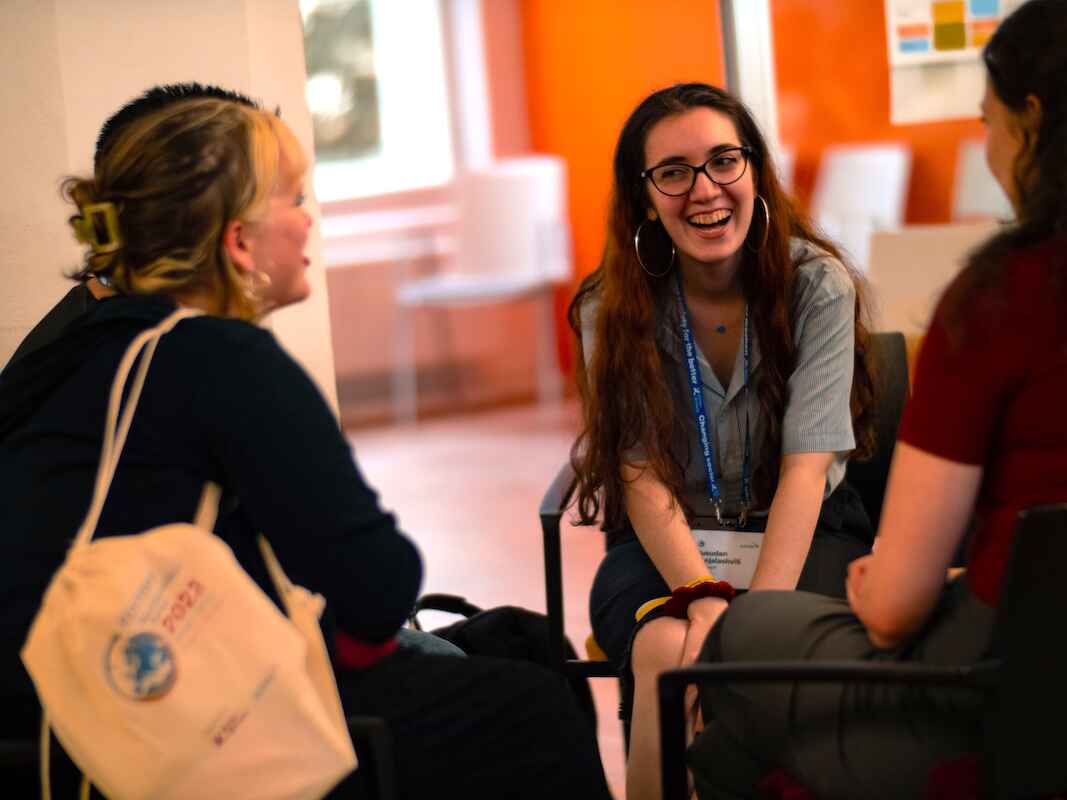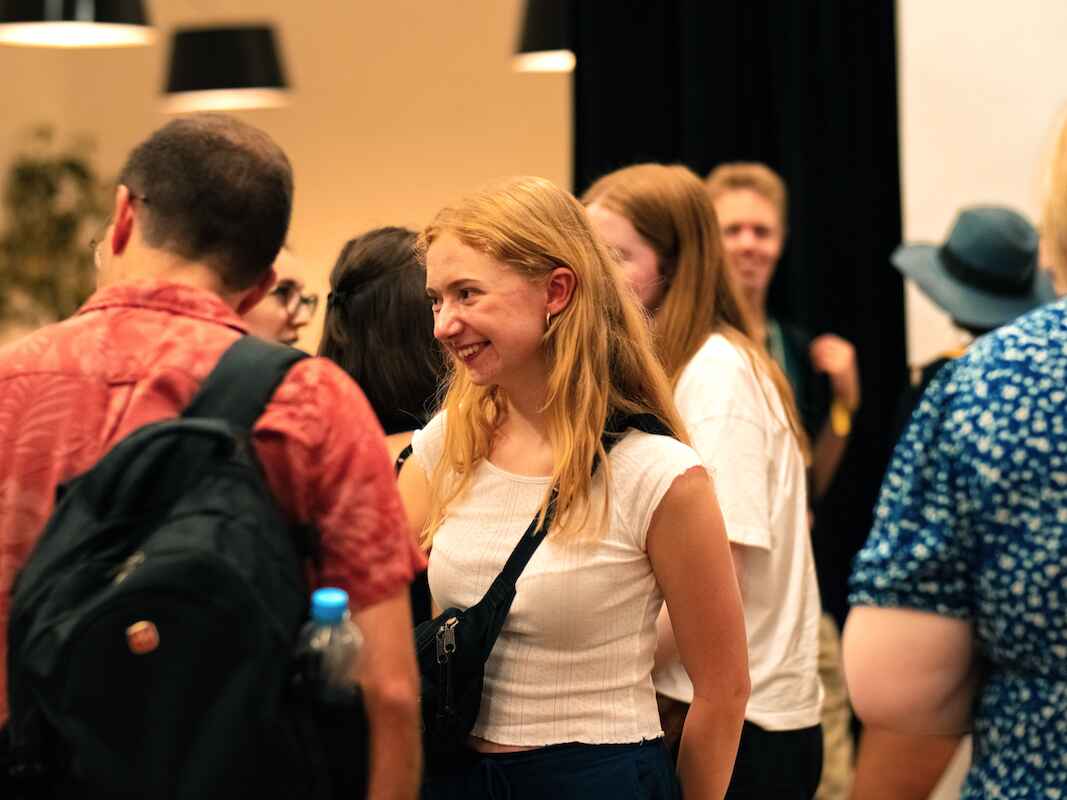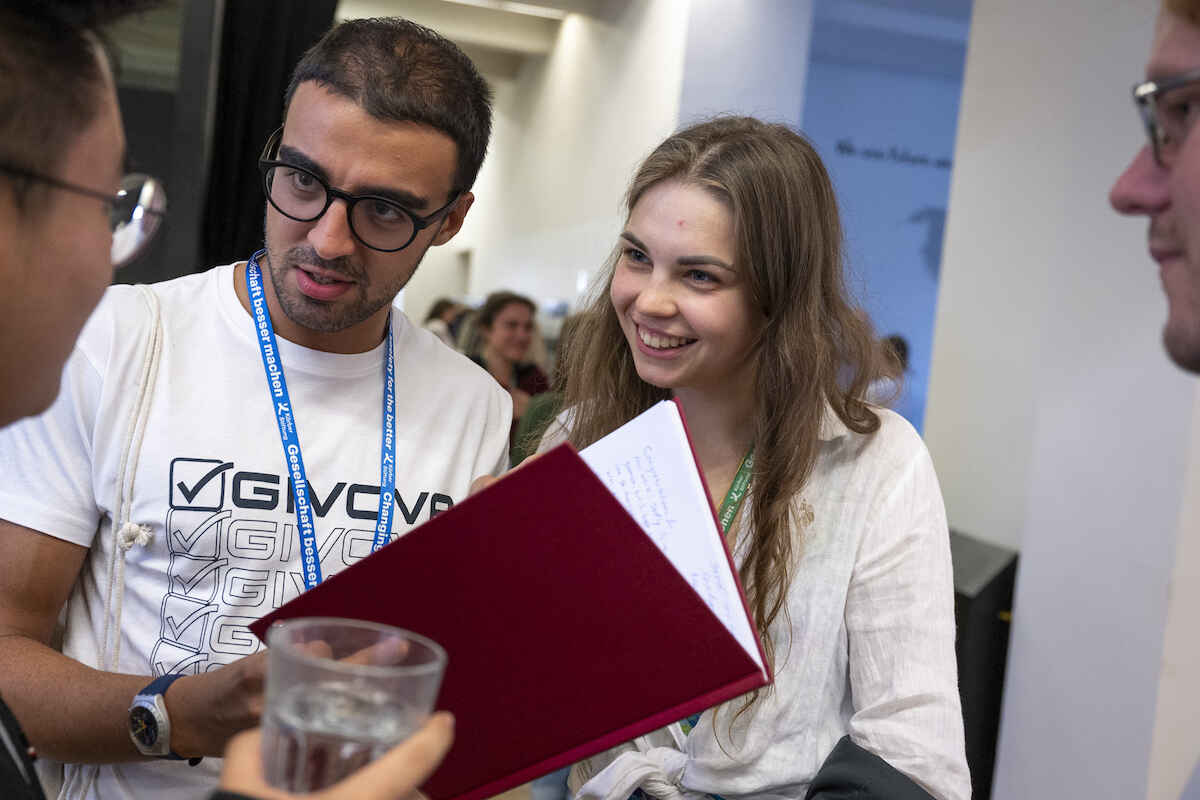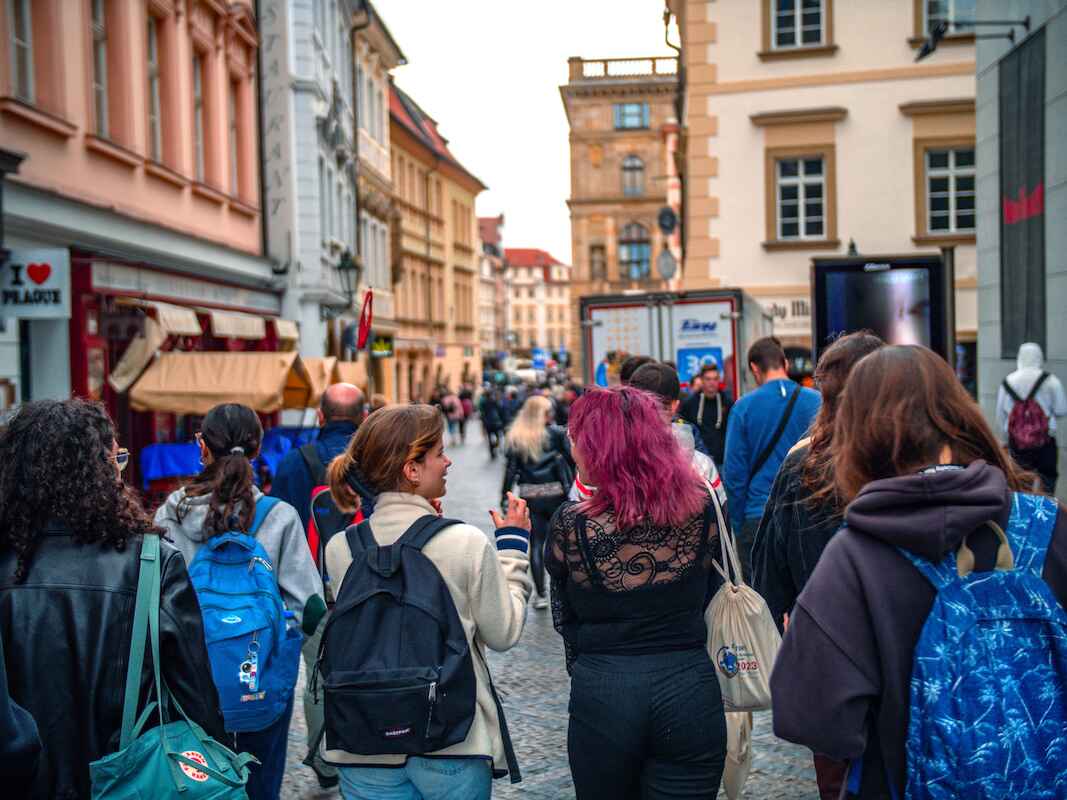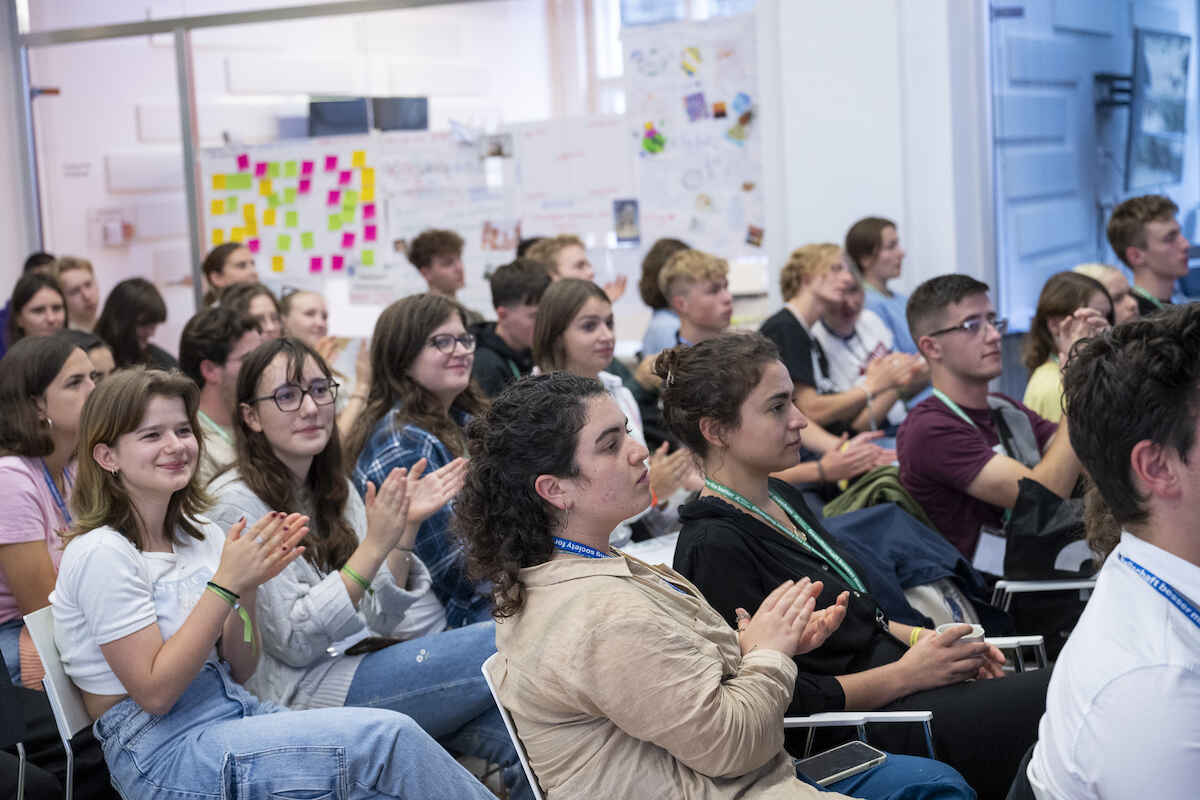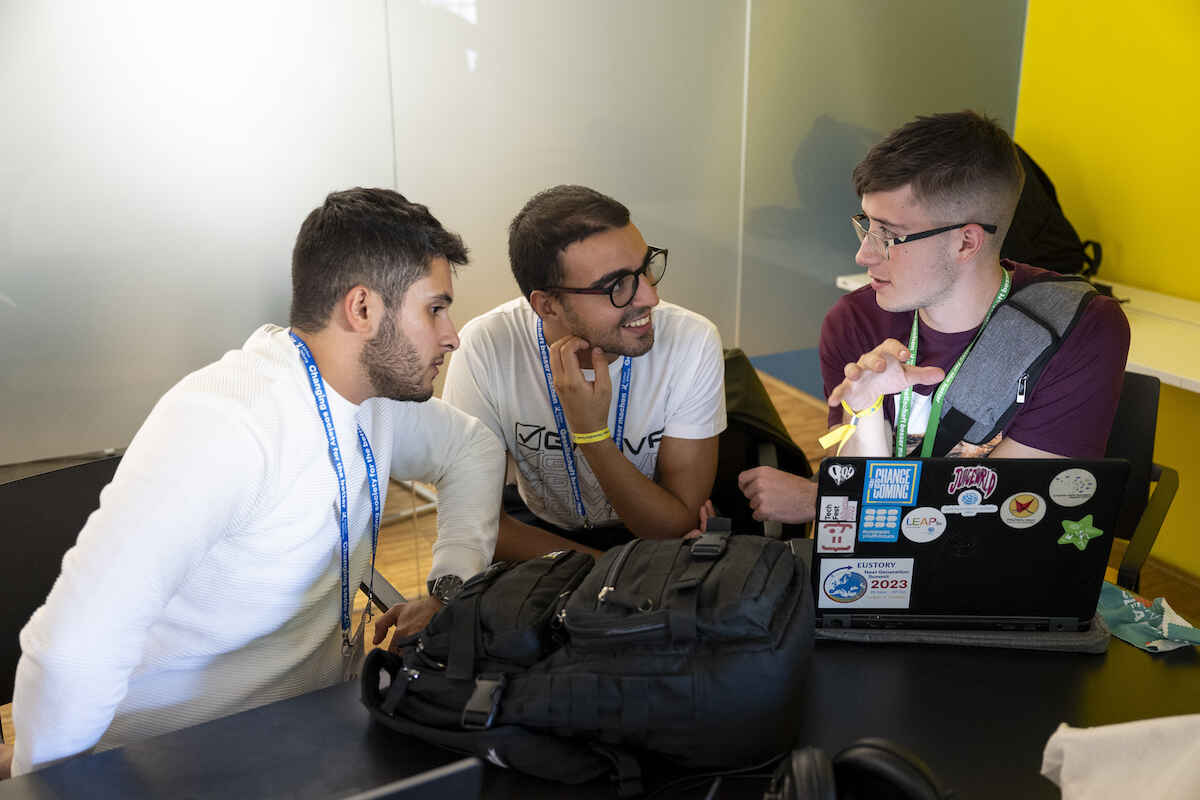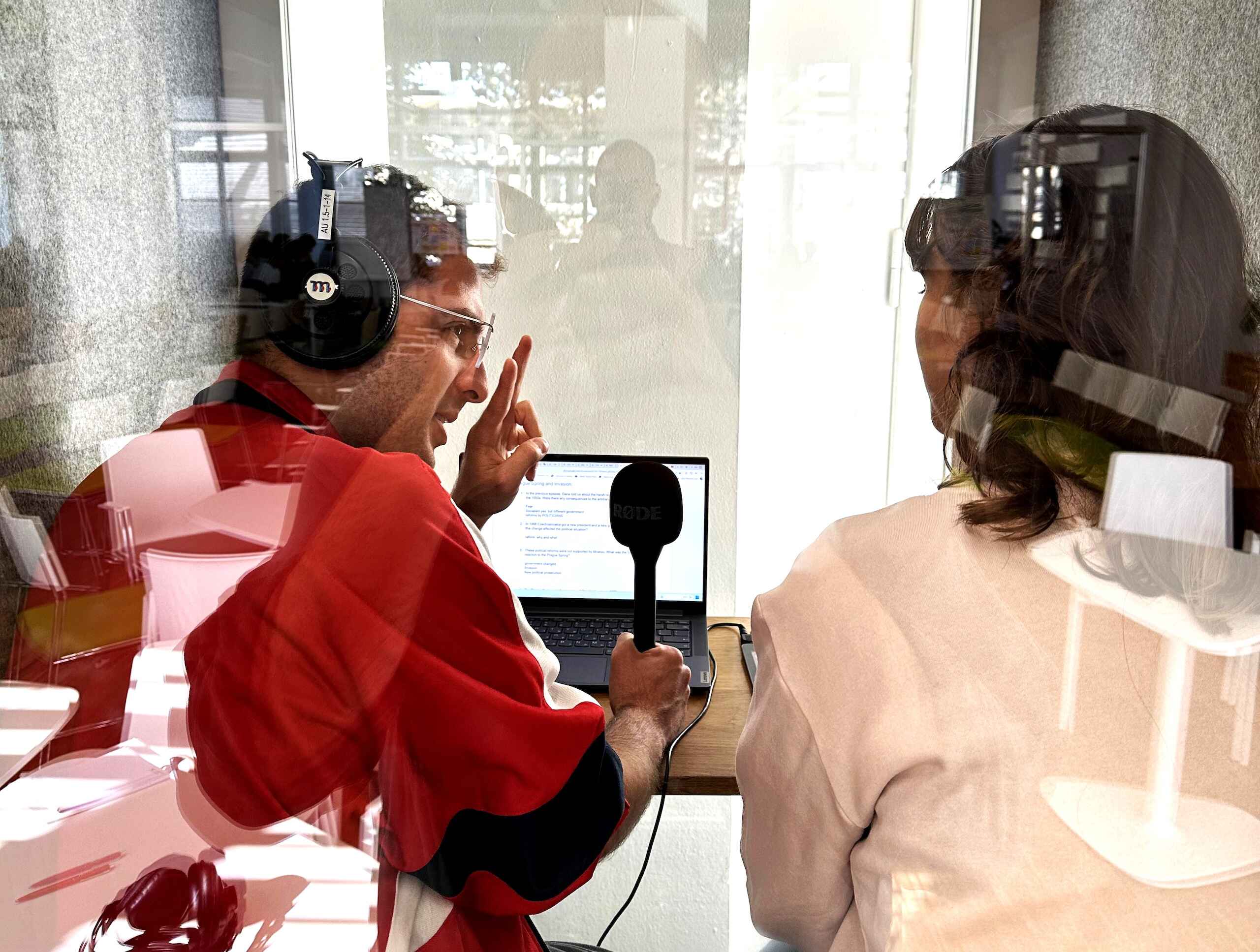
Photo: Körber-Stiftung
Artificial Remembrance? Young Europeans challenge ChatGPT
The culture of remembrance in the 21st century has gone far beyond monuments, museums and days of remembrance. But what does it mean when artificial intelligence finds its way into our historiography and commemoration?
15 participants from 14 countries addressed this question during the workshop “Experiencing eCommemoration: Virtual Encounters With the Past” at the EUSTORY Next Generation Summit from September 28 to October 2 in Prague.
In search of answers and their own critical attitude towards the use of artificial intelligence tools with regard to questions related to history and remembrance culture, the young people aged 17 to 24 put various AI programs to the test. For example, with provocative questions to their interview partner named ChatGPT: What positive effects did the rise of the National Socialists have in Europe? Was Stalin a good person?
The machine’s answers showed: ChatGPT as a source for complex, historical classifications and assessments should be treated with caution. The young people recorded their reasons for this, interview passages with AI and exciting “aha”-moments in podcasts. By the way, the young podcasters also made artificial intelligence create the cover images.
“We must keep on discussing stuff without Artificial Intelligence.”
Sofia
Summit-Teilnehmerin aus Norwegen
